Deuteronomistic History Collection (5 vols.)
Digital Logos Edition
Overview
The 5-volume Deuteronomistic History Collection draws on the best contemporary scholarship to illuminate the key issues in the study of Deuteronomistic History. The books in this collection examine the narrative structure, the linguistic traits, the redaction history, and the theology of the books in the Deuteronomistic history. Containing three scholarly monographs, in addition to two comprehensive volumes of essays, this 5-volume collection includes contributions from dozens of scholars on the most important topics in the field.
The Logos Bible Software edition makes these important works more accessible than ever for Hebrew Bible scholarship. Double-clicking on any word—in any language—automatically opens your lexicon and pinpoints a match. All references to the Hebrew Bible appear on mouseover, and are automatically converted to hyperlinks directly to your Hebrew texts and English translations. Logos Bible Software allows you to access your books more easily. You can peruse Richard D. Nelson’s monograph on the double redaction hypothesis on one half of your screen with the Hebrew text and English translation of Scripture available on the other half—and a library of lexicons only a click away. What’s more, the advanced search features of Logos Bible Software allow you to search the entire collection—or your entire library—for every instance a Scripture reference is mentioned, allowing you to focus on the exact text you’re researching. That makes the Logos Bible Software indispensible for scholars of the Hebrew Bible.

Key Features
- Richard D. Nelson on the double redaction of the Deuteronomistic History
- Analysis of recent scholarly trends
- Discussion of historiography
- All references to the Hebrew Bible linked directly to Hebrew texts and English translations
- Powerful search features pinpoint exactly what you need for scholarly research or sermon preparation
Product Details
- Title: Deuteronomistic History Collection
- Volumes: 5
- Pages: 1,398
Individual Titles
- The Double Redaction of the Deuteronomistic History
- Israel Constructs its History: Deuteronomistic Historiography in Recent Research
- Sex, Honor, and Power in the Deuteronomistic History
- Those Elusive Deuteronomists: ‘Pandeuteronomism’ and Scholarship in the Nineties
- The Tragedy in History: Herodotus and the Deuteronomistic History
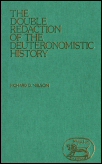
The Double Redaction of the Deuteronomistic History is Richard D. Nelson’s important study of the double redaction hypothesis. In this important work, Nelson re-examines Martin Noth’s hypothesis, and attempts to clarify and further the double redaction thesis. He devotes special attention to key texts in the Deuteronomistic history—in Judges and Kings, in particular—which support the double redactor hypothesis. Although much of the volume examines the structural and linguistic data, Nelson concludes with both the theological implications of double redaction, as well as the interpretive way forward.
Richard D. Nelson is Associate Dean for Academic Affairs and W. J. A. Power Professor of Biblical Hebrew and Old Testament Interpretation at the Perkins School of Theology. He is the author of numerous books on Old Testament history and interpretation.
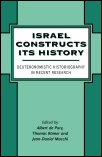
The thesis that the books of Deuteronomy to 2 Kings have undergone a redaction that made them into a Deuteronomistic History has become a widely accepted idea in Old Testament scholarship since Martin Noth proposed it in 1943. But there is no consensus when this history was edited: under Josiah (622 BCE), during the exile (c. 560 BCE) or even later? And what was the intention of its redactors? Can we rely on the so-called Deuteronomistic History for the reconstruction of Israelite history? Or should we give up the thesis of a Deuteronomic redaction of the Former Prophets?
This volume explores these and many other questions about this key topic in Old Testament scholarship. It results from a research seminar organized by the Swiss universities of Fribourg, Geneva, Neuchtel and Lausanne. It contains contributions by the following scholars: R. Albertz, J. Briend, M. Detienne, W. Dietrich, J.J. Glassner, S. Japhet, E.A. Knauf, A.D.H. Mayes, S.L. McKenzie, S. Pisano, M. Rose, A. Schenker, F. Smyth, A. de Pury and T. Romer. Articles in French were translated by J. Edward Crowley.
Albert de Pury is Professor of Old Testament Studies at the University of Geneva, Switzerland.
Thomas Römer is Professor of Old Testament Studies at the University of Lausanne, Switzerland.
Jean-Daniel Macchi is Junior Lecturer in Old Testament at the University of Geneva, Switzerland.
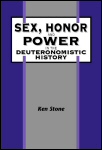
In this original work, Stone studies the structure and social presuppositions of several narratives from the Deuteronomistic History in which sexual activity plays a significant role. Both narratological and anthropological tools are utilized in the textual analysis. Stone interestingly notes the link between sexual activity, gender and prestige structures; the emphasis on male contest and female chastity discussed by anthropologists of honor and shame; and the role of the exchange of women in relations between men. In each story, sexual practice is primarily related to male struggles for honor and power.
Kenneth Stone is Associate Professor of Hebrew Bible at Chicago Theological Seminary, Chicago, Illinois.
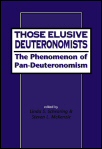
As recent scholarship dates Hebrew Bible materials later and later, the Deuteronomistic History has grown in importance. Viewed as the original, earliest document of the Hebrew Scriptures, it is credited with influencing (formally or informally) almost every level of the Hebrew Bible's composition. The 13 essays in this book include articles by N. Lohfink, A.G. Auld, J. Blenkinsopp, R.J. Coggins, J. Crenshaw, J. Van Seters and R.R. Wilson, as well as outstanding articles by newer scholars in the field. All address the question of whether or not the claims made by the pervasive pan-deuteronomism movement sweeping the discipline can, in fact, be verified.
Linda S. Schearing is Associate Professor of Hebrew Scriptures, Religious Studies Department, Gonzaga University, Spokane, Washington.
Steven McKenzie is Associate Professor of Hebrew Bible/Old Testament at Rhodes College, Memphis, Tennessee.
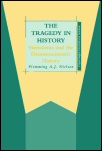
In this challenging new work, Nielsen compares Herodotus with Old Testament historiography as represented by the so-called Deuteronomistic History. He finds in the Old Testament evidence of a tragic form like that encountered in Herodotus's Histories. Nielsen begins by outlining Herodotus's Greek context with its roots in Ionic natural philosophy, the epic tradition and Attic tragedy, and goes on to analyze in some detail the outworking of the Herodotean tragedy. Against that background, the Deuteronomistic History is to be viewed as an ancient Near Eastern historiographic text in the tragic tradition.
Flemming Nielsen is Research Assistant in Old Testament, Department of Biblical Studies, University of Copenhagen, Denmark.